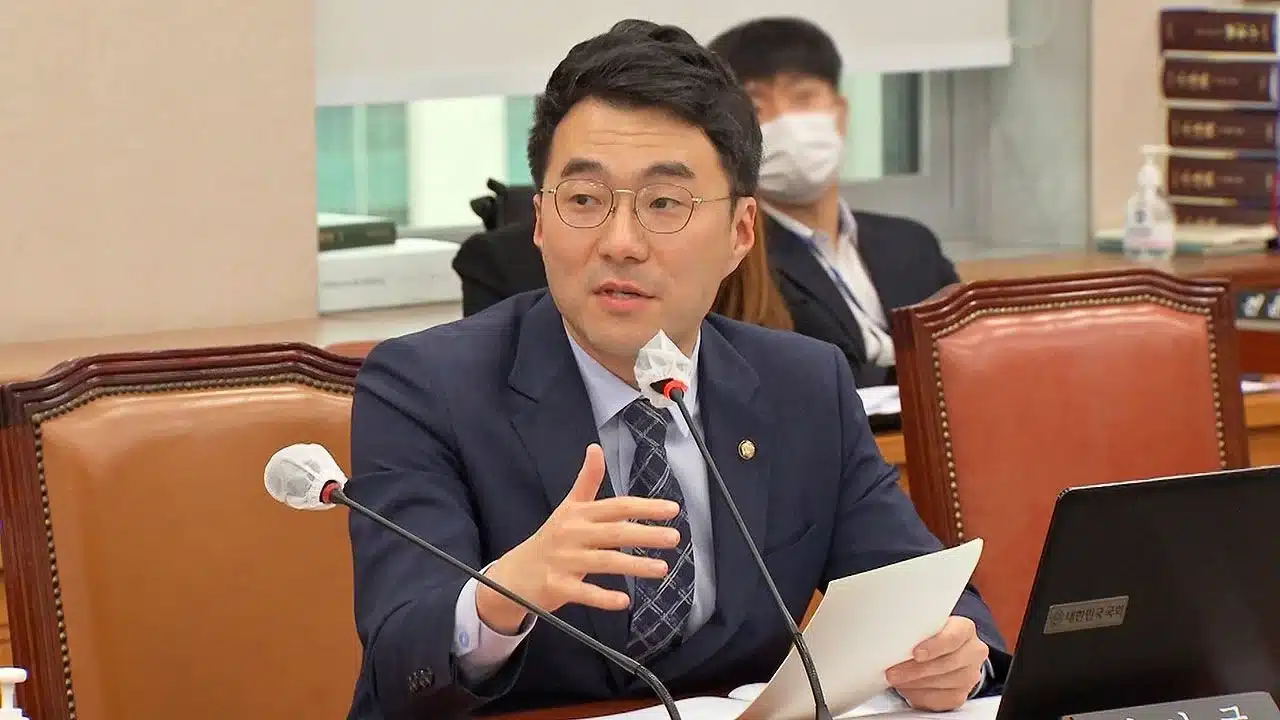South Korea Lawmaker Crypto Transfers – Local media stated that Democratic Party lawmaker Kim Nam-kuk had previously co-sponsored a plan to postpone taxes on cryptocurrency revenues.
The use of cryptocurrencies by a South Korean politician has sparked questions about possible conflicts of interest. The transactions were submitted to the prosecutor’s office by the Financial Services Commission’s Financial Intelligence Unit (FIU) after it flagged them as suspicious.
An alleged withdrawal of 800,000 WEMIX tokens worth roughly $596,000 was made by Kim Nam-kuk, a legislator for the Democratic Party of Korea, between late February and early March 2023. Public fury over the FIU investigation and concerns about the lawmaker’s involvement in the Bitcoin sector have been expressed.
Between January and February 2023, Kim’s WEMIX holdings reportedly totaled 6 billion won ($4.5 million). The purchases were made just before South Korea put the Financial Action Task Force (FATF) travel regulation into effect on May 8 at 09:32 UTC. The travel rule mandates that exchanges gather personal information on transactions and notify authorities when they reach a predetermined level.
Read Also:
- Bitcoin’s Price Continues to Drop, May 8, 2023
- Binance Reopens Bitcoin Withdrawals Amid Heavy Requests
- South Korea Lawmaker Crypto Transfers
- Major Shibarium Updates Coming in May
The delisted WEMIX token is also involved in the dispute concerning Kim’s cryptocurrency activities. Last year, major South Korean exchanges delisted WEMIX for reportedly presenting false numbers on the supply of circulation. WeMade, the issuer, unsuccessfully contested the delisting in court.
Kim Nam-Kuk’s involvement in Bitcoin
Concerns about a potential conflict of interest have been raised by Kim’s involvement in the Bitcoin industry. Previously, the politician was a co-sponsor of a proposal to postpone taxes on bitcoin gains. Kim had co-sponsored a change to the Income Tax Act in July 2021 that featured a clause to postpone taxing on virtual assets. Plans to tax cryptocurrency revenue and income from the “transfer or lending“ of virtual assets had been postponed by South Korea until 2025.
A discussion about whether or not MPs should be able to invest in cryptocurrency has been prompted by the controversy. The Public Service Ethics Act of South Korea does not include any provisions for disclosing virtual assets. Nevertheless, the recently implemented FATF travel rule mandates that exchanges gather personal data on transactions and disclose them to authorities when they reach a specific threshold.
Concerns concerning potential conflicts of interest and insider trading have been raised as a result of the unclear legislation. The government is anticipated to take action to resolve these problems and improve market transparency for cryptocurrencies.
The debate occurs as South Korea’s government considers regulating the Bitcoin sector. The Financial Services Commission announced intentions in March 2023 to make it necessary for cryptocurrency exchanges to obtain operational licenses and adhere to anti-money laundering laws. The action aims to increase market transparency and stop unlawful activity in cryptocurrencies.
Concerns regarding a possible conflict of interest and the need for clear restrictions on parliamentarians’ cryptocurrency investments have been sparked by the scandal surrounding lawmaker Kim Nam-kuk‘s Bitcoin transactions. The government is anticipated to take action to address these problems and make sure the Bitcoin market runs securely and transparently.
